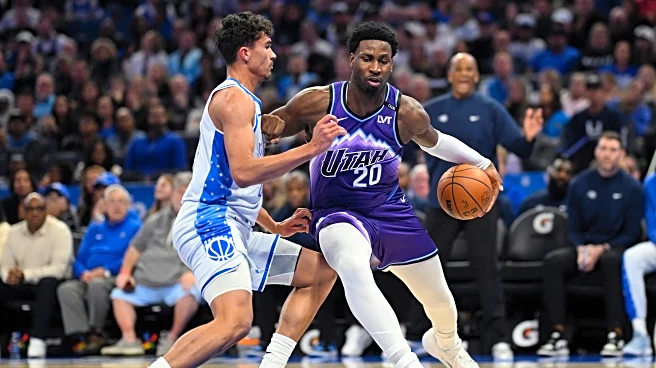What's Happening?
Cameron Corbishley, a British athlete and record holder in the 35km racewalk, is balancing his athletic career with a demanding job in the Yorkshire Ambulance Service. After competing in the Tokyo World Athletics Championships, Corbishley returned to his role as a logistics team leader, where he arranges patient transport. Despite the challenges of training twice a day, he remains committed to his job, which he says keeps him grounded. Corbishley, who began his athletic journey at Maidstone and Medway Athletics Club, is now aiming to compete in the Los Angeles Olympics in 2028.
Why It's Important?
Corbishley's dual commitment highlights the challenges faced by athletes who must balance their sporting ambitions with professional responsibilities. His story underscores the dedication required to pursue high-level athletics while maintaining a career, a reality for many athletes who do not have full-time sponsorships. This situation reflects broader issues in sports funding and support, where athletes often need to find alternative means to support their training and competition expenses. Corbishley's experience also emphasizes the importance of public service roles, such as those in healthcare, and the personal fulfillment they can provide.
What's Next?
Corbishley is focused on qualifying for the Commonwealth Games and ultimately the 2028 Olympics. His training regimen is designed to improve his competitiveness on the international stage. As he continues to balance his job and athletic pursuits, his story may inspire discussions on how to better support athletes who contribute to essential services. Stakeholders in sports and public policy might explore ways to provide more comprehensive support systems for athletes like Corbishley, ensuring they can pursue their dreams without compromising their professional responsibilities.
Beyond the Headlines
Corbishley's journey also raises questions about the sustainability of dual careers in high-performance sports and essential services. The physical and mental demands of such a lifestyle could lead to discussions on athlete welfare and the need for flexible work arrangements. Additionally, his story may prompt a reevaluation of how society values and supports individuals who contribute to both sports and public service, potentially influencing future policies in these areas.











